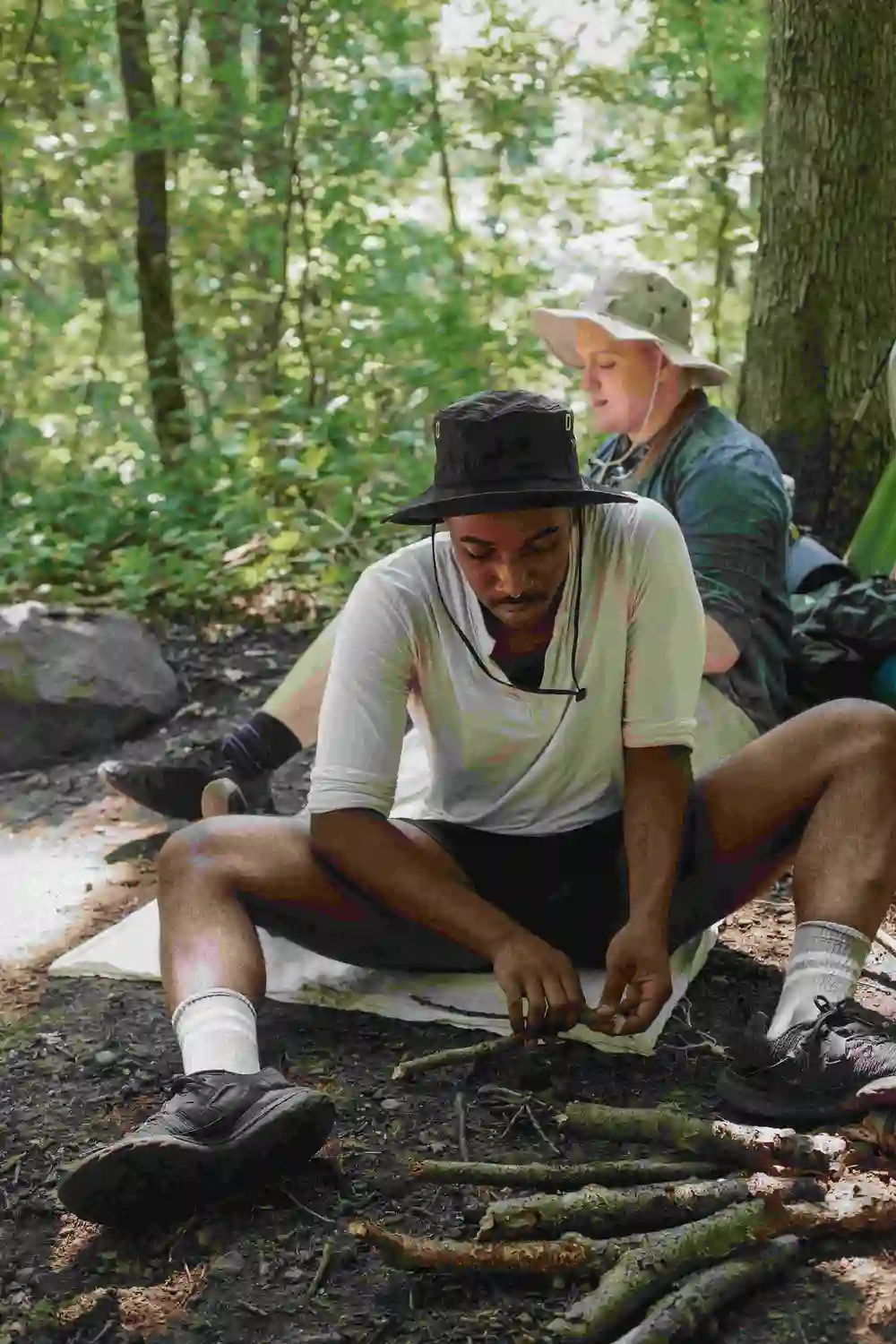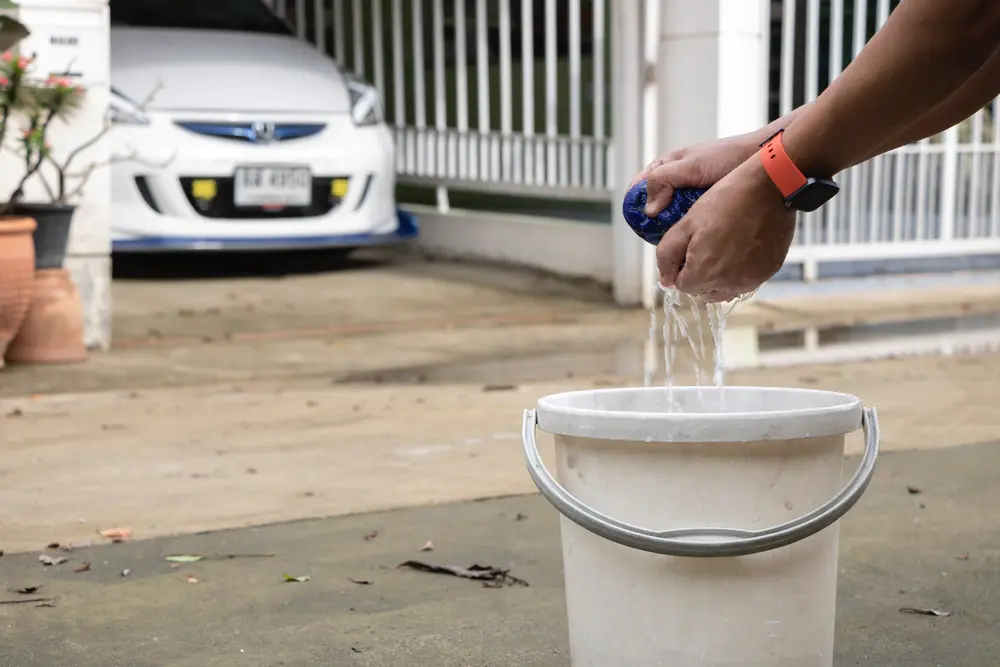| Key Takeaways |
|---|
| Dry camping is camping in an RV, van or motorhome with no hookups outside of a traditional campground. |
| Dry camping offers cost, freedom, privacy, and adventure benefits, but also requires more work, planning, and cargo. |
| Dry camping requires conserving water and electricity, managing waste, staying comfortable and warm, and respecting the environment and other campers. |
| Dry camping essentials include a reliable vehicle, a navigation system, an emergency kit, a communication device, and a fire extinguisher. |
| Dry camping locations include national parks and forests, state parks and wildlife areas, BLM lands, private lands, and parking lots. |
| Dry camping safety involves checking the weather and road conditions, locking your doors and windows, being aware of your surroundings, following the rules and regulations, and having fun. |
Introduction
If you are looking for a way to escape the crowds and enjoy nature in a more authentic way, you might want to try dry camping. Dry camping is camping in an RV, van or motorhome with no hookups (no electricity or water) outside of a traditional campground. It is also known as self-contained camping or off-grid camping.
Dry camping is different from boondocking, which is a form of free camping on public lands. Boondocking usually involves staying in remote areas with no facilities or amenities, while dry camping can be done in any location that allows it, such as national parks, state parks, private lands, or even parking lots.
Dry camping has its advantages and disadvantages. Some of the benefits are:
- Cost: Dry camping is cheaper than staying in a campground with hookups, as you don’t have to pay any fees or taxes. You can also save money on gas by driving less and staying longer in one place.
- Freedom: Dry camping gives you more flexibility and independence to choose where and when you want to camp. You can explore new places and experience different environments without being restricted by reservations or availability.
- Privacy: Dry camping allows you to enjoy more peace and quiet away from the noise and crowds of a campground. You can have more space and solitude to relax and unwind.
- Adventure: Dry camping offers more opportunities for adventure and fun. You can discover hidden gems and scenic spots that are not accessible by regular campers. You can also challenge yourself and learn new skills by living off the grid.
Some of the drawbacks are:
- Legality: Dry camping is not legal everywhere. You have to check the rules and regulations of your destination before you go. Some places may require permits, fees, or time limits for dry camping. Some places may prohibit it altogether.
- Work: Dry camping requires more work and planning than staying in a campground with hookups. You have to prepare your vehicle for off-grid living, conserve your resources, manage your waste, and deal with unexpected situations.
- Cargo: Dry camping requires more cargo than staying in a campground with hookups. You have to carry enough water, food, fuel, batteries, tools, spare parts, and other supplies to last for your trip.
In this post, we will provide you with a complete guide on how to dry camp successfully. We will cover topics such as tips for dry camping, essentials for dry camping, locations for dry camping, and safety for dry camping.
Tips for Dry Camping
Dry camping can be a rewarding experience if you know how to do it right. Here are some practical tips that will help you prepare for and enjoy dry camping:
- Plan ahead and research your destination. Before you go dry camping, you should do some research on your destination. Find out if dry camping is allowed there, what are the rules and regulations, where are the best spots to camp, where are the nearest facilities (such as gas stations, dump stations, etc.), and what are the weather and road conditions. You can use online resources such as Campendium, Free Campsites, or Allstays to find dry camping locations and reviews.
- Conserve water and electricity. One of the main challenges of dry camping is to make your water and electricity last for your trip. You can use solar panels, generators, inverters, or batteries to power your appliances and devices. You can also use LED lights, low-flow faucets, and energy-efficient appliances to reduce your consumption. You can use water tanks, jugs, or bladders to store water for drinking, cooking, washing, and flushing. You can also use biodegradable soap, wet wipes, or sanitizer to clean yourself and your dishes. You should monitor your water and electricity levels regularly and avoid wasting them unnecessarily.
- Manage your waste. Another challenge of dry camping is to deal with your waste properly. You should have separate containers for your gray water (from sinks and showers), black water (from toilets), and trash. You should dispose of them at designated dump stations or trash bins when you find them. You should never dump your waste on the ground or in the water, as it can harm the environment and attract pests. You should also use compostable or recyclable materials whenever possible to reduce your waste.
- Stay comfortable and warm. Dry camping can be uncomfortable and cold at times, especially at night or in winter. You should have adequate insulation, ventilation, and heating in your vehicle to keep you cozy and prevent condensation. You should also have proper bedding, clothing, and accessories to keep you warm and comfortable. You can use sleeping bags, blankets, pillows, heaters, fans, etc. to make your sleeping area more inviting. You can also use rugs, curtains, cushions, etc. to make your living area more cozy.
- Respect the environment and other campers. Dry camping is a privilege that comes with responsibility. You should respect the environment and other campers by following the leave no trace principles. These include:
- Plan ahead and prepare for your trip.
- Travel and camp on durable surfaces.
- Dispose of waste properly.
- Leave what you find.
- Minimize campfire impacts.
- Respect wildlife.
- Be considerate of other visitors.
Essentials for Dry Camping
Dry camping requires some essential items that will make your trip easier and safer. Here are some of the items that you should bring with you when dry camping:
A reliable vehicle. Your vehicle is your home when you dry camp, so you want it to be reliable and comfortable. You should choose a vehicle that can handle different terrains and weather conditions, such as an RV, van or motorhome. You should also maintain your vehicle regularly and check its tires, brakes, fluids, lights, etc. before you go. You should also have a spare tire, jack, tire pressure gauge, etc. in case of a flat tire.
A navigation system or map. A navigation system or map can help you find your way and locate nearby facilities when you dry camp. You can use a GPS device, a smartphone app, or a paper map to navigate your route and destination. You should also have a backup option in case your primary one fails or loses signal. You should also research your destination beforehand and have a general idea of where you are going and what to expect.
An emergency kit. An emergency kit can help you deal with unexpected situations when you dry camp. Your emergency kit should contain first aid supplies, tools, spare parts, flashlight, whistle, fire starter, etc. to handle emergencies. You should also have a list of emergency contacts and numbers that you can call in case of need.
A communication device. A communication device can keep you connected and informed when you dry camp. You can use a cell phone, a satellite phone, a radio, or a ham radio to communicate with others and get updates on the weather, news, etc. You should also have a charger, a battery pack, or a solar panel to keep your device powered. You should also check your signal strength and coverage before you go and have a backup option in case your primary one fails or loses signal.
A fire extinguisher. A fire extinguisher can prevent or stop a fire from spreading in your vehicle or campsite when you dry camp. You should have a fire extinguisher that is suitable for your vehicle type and fuel source, such as an ABC or BC type. You should also know how to use it properly and safely. You should also check its expiration date and pressure gauge regularly and replace it if needed.
Locations for Dry Camping
Dry camping can be done in various locations that allow it. Here are some of the best places where you can dry camp in the USA:
- National parks and forests. National parks and forests offer scenic views and recreational opportunities for dry campers. You can enjoy hiking, biking, fishing, wildlife watching, etc. in these natural areas. You can also learn about the history and culture of these places through interpretive programs and exhibits. Some national parks and forests have designated campgrounds or areas for dry camping, while others allow dispersed camping in certain locations. You should check the website or visitor center of each park or forest for more information on dry camping rules and regulations.
- State parks and wildlife areas. State parks and wildlife areas provide natural habitats and educational programs for dry campers. You can observe and learn about the flora and fauna of these places through guided tours and trails. You can also participate in various activities such as boating, swimming, hunting, etc. in these places. Some state parks and wildlife areas have designated campgrounds or areas for dry camping, while others allow dispersed camping in certain locations. You should check the website or visitor center of each park or wildlife area for more information on dry camping rules and regulations.
- Bureau of Land Management (BLM) lands. BLM lands allow dispersed camping for free or low fees for dry campers. You can camp anywhere on BLM lands as long as you follow some basic guidelines such as staying within 150 feet of a road, not blocking access to water sources, not staying longer than 14 days in one place, etc. You can also enjoy various activities such as off-roading, rock climbing, horseback riding, etc. on BLM lands. You should check the website or office of each BLM district for more information on dry camping rules and regulations.
- Private lands. Private lands permit dry camping with the owner’s consent or invitation. You can find private lands that allow dry camping through online platforms such as Boondockers Welcome, Harvest Hosts, or Hipcamp. These platforms connect dry campers with private landowners who offer their property for camping in exchange for a fee, a membership, a review, or a gift. You can also find private lands that allow dry camping through word-of-mouth or personal connections. You should always respect the owner’s wishes and rules when dry camping on private lands.
- Parking lots of big box stores or truck stops. Parking lots of big box stores or truck stops offer convenience and security for dry campers who need a place to stay overnight or rest for a few hours. You can find parking lots that allow dry camping through online resources such as Overnight RV Parking, Walmart Locator, or Allstays. These resources list the locations and policies of parking lots that welcome dry campers across the USA. You should always ask for permission from the store manager or staff before parking your vehicle in their lot. You should also follow some etiquette rules such as parking away from the entrance, not extending your slides or awnings, not running your generator at night, etc.
Safety for Dry Camping
Dry camping can be safe if you take some precautions before and during your trip. Here are some of the safety measures that you should take when dry camping:
- Check the weather forecast and road conditions before you leave and during your trip. You should avoid driving or camping in extreme weather conditions such as storms, floods, snow, etc., as they can pose risks to your vehicle and yourself. You should also avoid driving or camping on rough roads that can damage your vehicle or cause accidents. You should always have an alternative route or destination in case of unexpected changes in the weather or road conditions.
- Lock your doors and windows and secure your valuables when you are away from your vehicle. You should protect your vehicle and belongings from theft or vandalism when you dry camp. You should lock your doors and windows and activate your alarm system if you have one. You should also hide or store your valuables such as money, jewelry, electronics, etc. in a safe place such as a safe, a locked cabinet, or a hidden compartment. You should also not leave any signs that indicate that you are away from your vehicle such as notes, clothes, etc.
- Be aware of your surroundings and avoid potential hazards or threats such as wildlife, fire, theft, etc. You should be alert and vigilant when you dry camp. You should observe and listen to your surroundings and notice any unusual or suspicious activities or noises. You should also avoid any hazards or threats that can harm you or your vehicle such as wild animals, fire, theft, etc. You should keep a safe distance from wildlife and never feed or approach them. You should also keep a fire extinguisher handy and never leave a fire unattended. You should also park your vehicle in a well-lit and visible area and never open your door to strangers.
- Follow the rules and regulations of your camping area and respect the rights of other campers. You should abide by the rules and regulations of your camping area when you dry camp. You should follow the guidelines for dry camping such as staying within the designated area, not exceeding the time limit, not dumping your waste, etc. You should also respect the rights of other campers by not disturbing them with noise, light, smoke, etc. You should also not trespass on private property or damage public property.
- Have fun and enjoy the experience of dry camping! Dry camping can be a fun and enjoyable experience if you do it right. You can experience nature in a more authentic way, explore new places, learn new skills, and make new friends when you dry camp. You can also create memorable moments and stories that you can share with others when you dry camp. You should always have a positive attitude and a sense of adventure when you dry camp.
Conclusion
Dry camping is a great way to camp off the grid and enjoy nature in a more authentic way. It offers many benefits such as cost, freedom, privacy, and adventure, but also requires some work, planning, and cargo. It requires some tips, essentials, locations, and safety measures to make it successful.
We hope this guide has helped you understand what is dry camping and how to do it like a pro. We hope you have learned some useful information and tips that will help you prepare for and enjoy dry camping.
If you have any questions or comments about dry camping, feel free to leave them below. We would love to hear from you.
Happy dry camping!





Use the share button below if you liked it.
It makes me smile, when I see it.